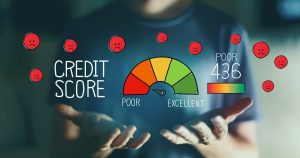When purchasing a home, there is a lot to consider – and it’s natural to have questions, especially if it’s your first time. You might be looking for general first-time home buyer advice, as well as the best way to get down payment assistance or assistance with closing costs.
Here, we’ll go over some of the most beneficial programs for first-time home buyers, so you know what options are available.
Types of First-Time Home Buyer Programs
The costs of a first-time home buyer can be overwhelming. But, thankfully, there are several options for down payment and closing cost assistance, including charitable and government-sponsored programs. Local and federal tax credits can help to mitigate the impact, and there are educational programs that can assist at every stage.
Assistance with Down Payment
A down payment is a significant upfront cost when purchasing a home, and it is required for the majority of mortgages. Though many first-time home buyers believe that a 20% down payment is required to obtain a mortgage, many lenders offer loans to first-time buyers with as little as a 3% down payment.
DPA Loans
You’re not sure you can afford a down payment on your own? You may also be able to obtain down payment assistance (DPA) through a few different types of loans to reduce the amount you must put down.
Second mortgages, deferred payment loans, and forgiven loans are just a few options.
Loans structured as a second mortgage must be paid off concurrently with your primary mortgage.
When you move, sell, refinance, or pay off your primary mortgage, you must pay off your deferred payment loans in full.
Loans can also be forgiven over a set number of years, but must be repaid if you move, sell, refinance, or pay off your main mortgage before the set number of years expires, or otherwise violate the terms of forgiveness.
Grants from the DPA
You may be able to obtain DPA through grants that do not need to be repaid. Loan and grant program requirements may vary, so it’s best to check with your local or state government for details on any first-time buyer down payment assistance programs.
Government-Guaranteed Loans
A federal government-backed loan can also assist qualified first-time home buyers in purchasing with no down payment – we’ll go over these types of loans in more detail below.
Government First-Time Home Buyer Programs
When you buy a home, you can take advantage of federal, state, and local government programs. Anyone who is a citizen or legal resident of the United States is eligible to participate in federal programs. Though not everyone is eligible for every program, you do not have to live in a specific state to receive federal assistance. Some of the most popular federal programs for first-time home buyers are listed below.
Government-Backed Loans
Government-backed loans can help you buy a home even if you have a low down payment or bad credit. Government-backed loans are insured by the government, which means they are less risky for lenders.
This also implies that lenders may be able to offer you a lower interest rate. Currently, three types of government-backed loans are available: FHA loans, USDA loans, and VA loans. Each program has its own set of requirements.
Good Neighbor Next Door
Are you a pre-K–12 teacher, an EMT, a firefighter, or a law enforcement officer? You can take advantage of the Department of Housing and Urban Development’s Good Neighbor Next Door program (HUD).
The Good Neighbor Next Door program provides a generous 50 percent discount on select HUD properties. The available properties are foreclosures and are very affordable even without the discount. The HUD program website has a list of available properties.
HomePath® Program
With their HomePath® program, Fannie Mae allows first-time home buyers to purchase a foreclosed property for as little as 3% down. You can also apply for up to 3% of your closing costs to be reimbursed through the program. Fannie Mae homes are sold in as-is condition, so you may need to make a few repairs before you can move in. Closing cost assistance, on the other hand, can make it easier to cover these costs.
The HomePath® Ready Buyer program is only available to first-time buyers who plan to live full-time in the home they want to buy. Before you can close, you must complete and pass Fannie Mae’s Framework Homeownership course.
The Next Steps
First-time home buyers can take advantage of a variety of grants, loans, and financial assistance programs that can make the process of purchasing a home easier. Down payment and closing cost assistance, tax credits, and education are all examples of first-time buyer assistance. If you meet certain income requirements, you may be eligible for assistance from your local, state, or federal governments.
There are also charities, nonprofits, and employer programs available. These programs differ by state, but you can easily find programs that you qualify for by visiting the HUD website. You cannot have owned property in the last three years as a first-time buyer.
If you’re a student looking to buy a home, keep in mind that your student loans may make getting a mortgage more difficult, but the same first-time buyer programs should apply.
When you’re ready to buy, talk to our experts about your options.



